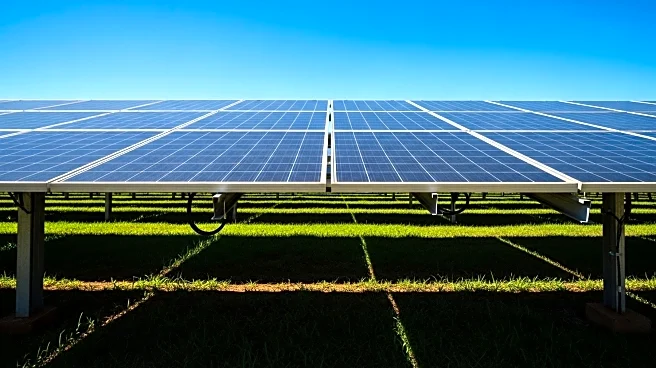What's Happening?
Distributed solar generation capacity has become the fastest-growing power source in Brazil, significantly contributing to the country's total electricity generation capacity since 2019. As of June 2025, distributed solar capacity reached 40 GW, accounting for 43% of all electricity capacity additions. This growth is largely driven by Brazil's net metering policies, which allow owners of distributed generation systems to sell excess electricity to the grid for billing credits. The majority of distributed generation in Brazil is solar photovoltaic, with small hydroelectric and wind making up the remainder.
Why It's Important?
The rapid expansion of distributed solar capacity in Brazil highlights the potential of decentralized energy systems to enhance energy security and sustainability. By enabling local generation and consumption, distributed solar reduces transmission losses and increases resilience against grid disruptions. This growth also reflects the effectiveness of supportive policies in promoting renewable energy adoption. As Brazil continues to expand its solar capacity, it sets an example for other countries seeking to transition to cleaner energy sources and reduce reliance on fossil fuels.
What's Next?
The future of distributed solar in Brazil looks promising, with continued policy support and technological advancements expected to drive further growth. However, the pace of expansion may vary depending on regulatory changes and market conditions. As of mid-2025, there are significant planned utility-scale solar projects, although only a fraction are under construction. The ongoing development of distributed solar systems will likely play a crucial role in meeting Brazil's energy needs and achieving its renewable energy targets.
Beyond the Headlines
The success of distributed solar in Brazil underscores the importance of policy frameworks that incentivize renewable energy adoption. It also highlights the potential for distributed generation to empower consumers and communities by providing greater control over energy production and consumption. This shift towards decentralized energy systems could lead to broader societal and economic benefits, including job creation and energy cost savings.









